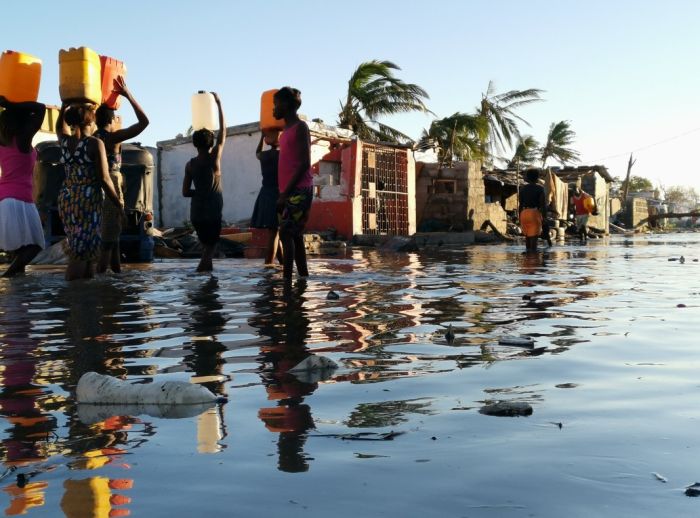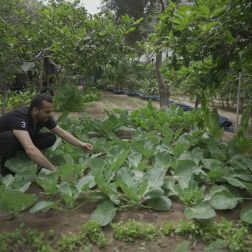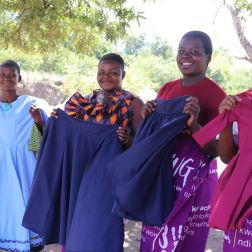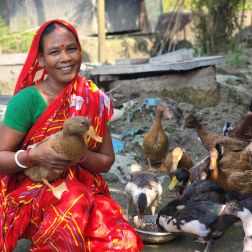- 3 mins read time
- Published: 16th January 2020
One person flees their home every two seconds
Leaders must heed climate strikes and give vulnerable people the tools to survive.
People living in the poorest countries receive less than one cent per day – to protect themselves from the devastating impacts of the climate crisis, Oxfam estimates in a recent report. People are facing mounting human and financial costs from climate-related disasters they did least to create.

Climate adaptation pledges from wealthier nations are overstated and notoriously opaque.
Winnie Byanyima, Oxfam’s previous Executive Director, has said: "Wealthy governments are failing to live up to their promise to help poor nations adapt to the climate crisis. The poorest and most indebted nations on earth have done the least to cause this crisis but are being left to foot the bill. To avoid a downward spiral of ever more frequent humanitarian crises we need more funds for adaptation in the hands of the poorest communities. This should be genuine assistance – not loans that need to be paid back."
In the last year, the drought in the Horn of Africa has left more than 15 million people needing humanitarian aid. Repeated cyclones have left 2.6 million people in need of assistance. Substantial levels of climate finance provided on an annual basis would allow countries to reduce the impact of climate shocks by, for example, diversifying crops, conserving water or investing in better weather monitoring systems.
High levels of debt in countries like Somalia and Mozambique further exacerbate the impacts of climate shocks by squeezing the resources available for them to become more resilient to future climate shocks and to develop in a low-carbon way. Somalia’s debt stands at 75 per cent of its GDP and any climate finance provided in the form of loans risks pushing them deeper into debt. Oxfam estimates that around two-thirds of climate finance is provided in the form of loans that need to be repaid.
Oxfam is calling on wealthier nations to make ambitious emissions reductions and ensure more climate finance is directed towards adaptation in the least developed countries. This should include meeting their 2020 climate finance commitment and doubling their pledges to the Green Climate Fund compared with the previous round.




